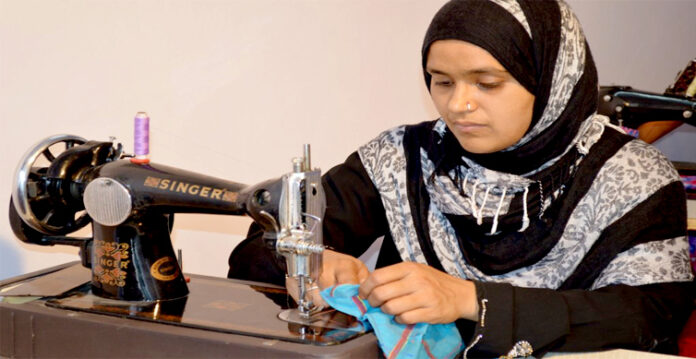A recently launched scheme by the Telangana Minorities Finance Corporation (TGMFC) to provide sewing machines to women from minority communities has come under fire from activists and social workers. The program, named ‘Indiramma Mahila Shakti,’ aims to empower women by distributing 10,490 sewing machines across the state, but the bureaucratic hurdles and associated costs are raising concerns about its effectiveness.
The ‘Indiramma Mahila Shakti’ scheme was officially launched with a budget of Rs. 6.64 crore, translating to a cost of Rs. 7,830 per sewing machine. TGMFC’s goal is to provide these machines to women belonging to minority communities, prioritizing destitute women, divorcees, widows, orphans, and single women. However, the process to access these benefits has been described as unnecessarily complex, deterring many eligible beneficiaries.
To apply for the scheme, women are required to submit several documents, including a ration card or food security card, income certificate, caste certificate, Aadhar card, training certificate, and a self-declaration stating they have not availed of financial assistance from TGMFC in the past five years. Applications must be filed online, followed by the submission of hard copies at local district minority welfare offices.
Also Read: Telangana Government Allocates Rs 194.88 Crore for Minority Welfare Programs
Activists have pointed out that not all women possess ration cards or food security cards, forcing them to apply for income certificates, often through brokers who charge Rs. 400 to Rs. 500. “Instead of adding this financial burden, TGMFC should take a simple undertaking from the applicants,” suggested social activist Masood Ali .
According to social worker Mohd Aksam, applicants are spending between Rs. 800 and Rs. 1,000 just to complete the application process. “Making people spend roughly 15 per cent of the cost of the machine is illogical,” he said. Activists argue that the scheme’s implementation disregards the financial constraints of the very people it aims to support.
Given the demand for such initiatives, the scheme is expected to attract between 80,000 to 1 lakh applications. However, with only 10,490 machines available, the vast majority of applicants will not benefit. “The numbers of applications received will far exceed the plan, just as seen in previous financial assistance schemes,” noted Kareem Ansari, a social activist from Shaheennagar.
Critics argue that the scheme in its current form serves more as a political gesture than a meaningful empowerment initiative. “A better approach would be to design a program that genuinely fosters self-employment opportunities for women,” said a woman activist, who chose to remain anonymous. She added that the current scheme is unlikely to achieve its stated goals and may instead create frustration among those who are unable to benefit.
While the ‘Indiramma Mahila Shakti’ scheme is a commendable effort to empower women from minority communities, its execution leaves much to be desired. Simplifying the application process and addressing the financial burdens imposed on applicants could go a long way in ensuring that the initiative truly benefits the intended recipients. Until then, the scheme’s critics are unlikely to be silenced.
(This story is sourced from a third-party syndicated feed. Raavi Media takes no responsibility or liability of any nature. Raavi Media management/ythisnews.com can alter or delete the content without notice for any reason.)


